On July 14, 2023, in the community of Ntatumbila, situated in the northern region of Zambia in the Nakonde district, more than 150 people gathered under the shade for the inaugural general assembly for the Ntatumbila Power Electric Cooperative Society, Ltd. (NPECS). They approved the new co-op bylaws and elected their board of directors. In the coming months many activities will take place to lay a strong foundation for the successful governance, operations, and management of the co-op. It is anticipated that homes and businesses will receive first-time electricity by the end of 2024 from a solar-powered mini grid that will be constructed soon.
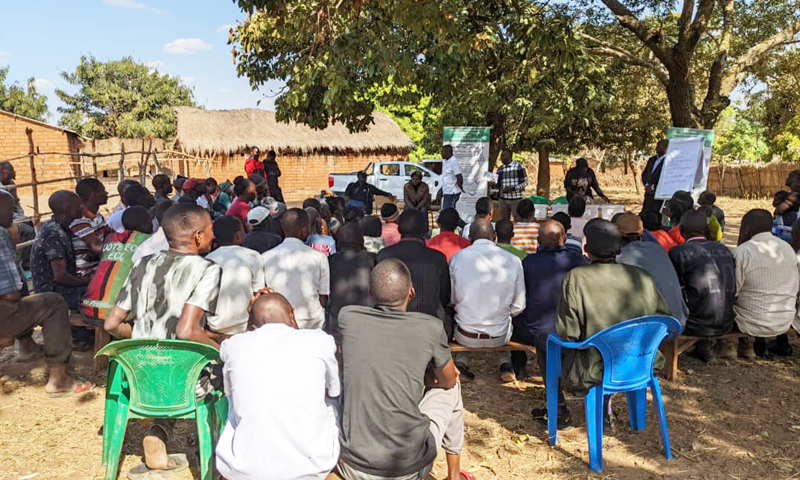
This auspicious beginning was made possible by the Zambia Electric Cooperative Development Program (ZECDP), funded by the US Agency for International Development, and implemented by NRECA International in partnership with the Zambia Rural Electrification Authority (REA).
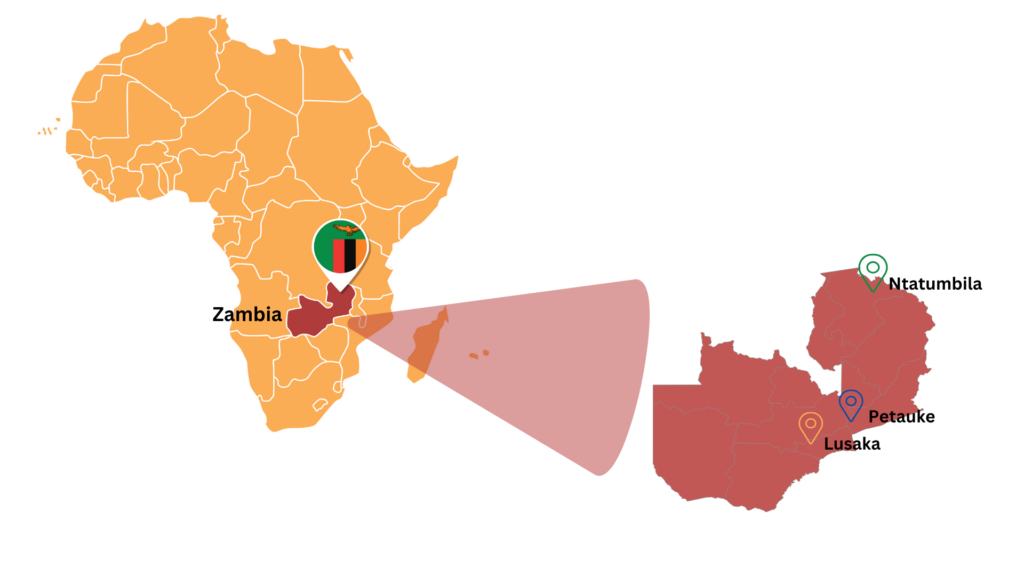
About 950 kilometers southwest from Ntatumbila, similar activities are taking place. NRECA International and REA are conducting energy assessments and meeting with community members in the Petauke district, to begin the awareness building process on what an electric cooperative is, that it is a viable model to bring reliable and affordable electricity to their communities and will encourage economic growth through the productive use of electricity.
In Zambia’s capital Lusaka, Doreen Bwalya, the ZECDP program manager is hopeful that the developments in Ntatumbila and Petauke will help people see that the cooperative model is the answer to bring reliable power to the rural areas in her country.
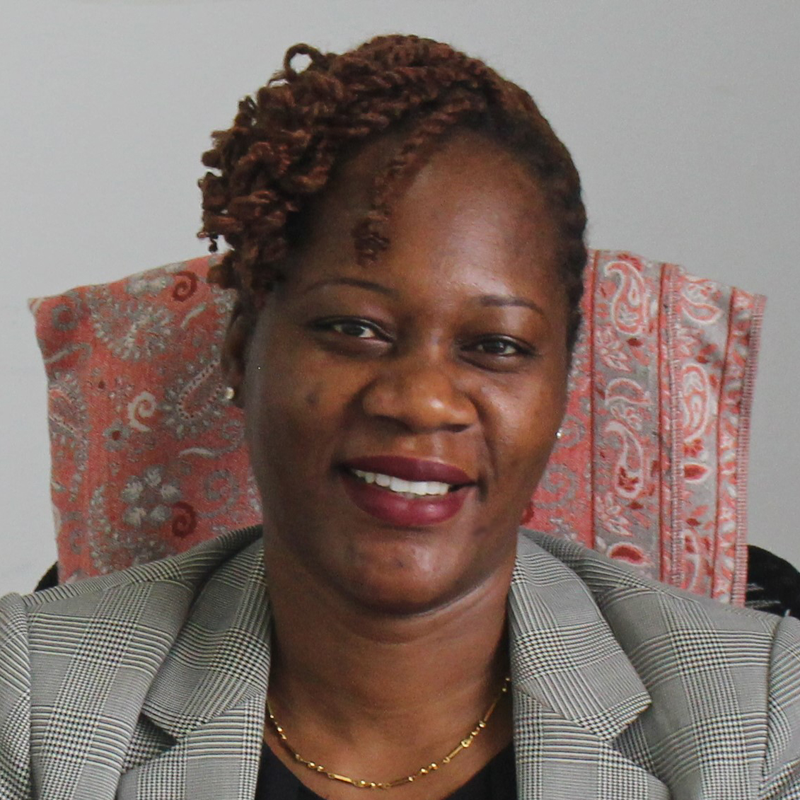
“We have a lot of enthusiasm on the ground,” she said, referring to both communities. “In Ntatumbila the community is taking ownership of their co-op, and the people are excited. Energy access is very import ant to them, and when they had to vote to form the cooperative, 99 percent of the residents who participated voted in favor.”
ENGAGING THE COMMUNITY
A big part of this success can be attributed to months of community awareness and engagement activities. Led by the NRECA International’s ZECDP Community Outreach Specialist Ernest Lupiya, a team traveled more than 1000 kilometers multiple times from Lusaka to Ntatumbila, to host community outreach meetings and increase awareness about how the electric cooperative model can benefit their community.
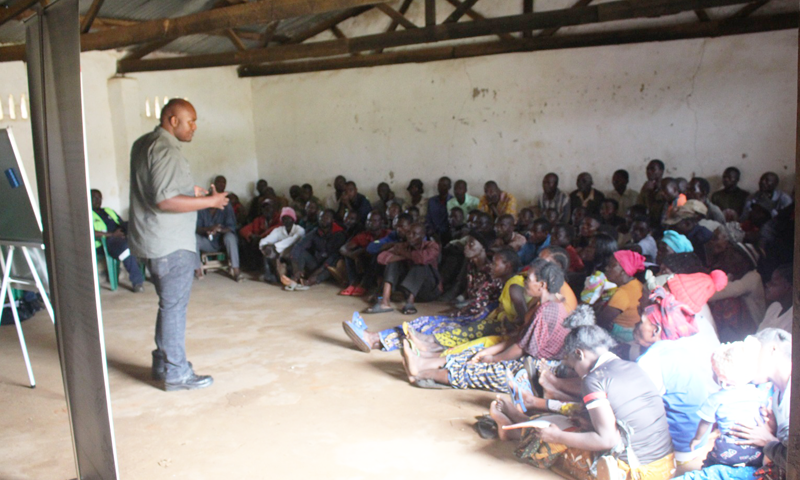
“In Ntatumbila there are about 400 households and during the first meeting, more than 200 people came and they were very receptive to our presentations,” said Ernest. “They asked a lot of questions about the type of technology we will be using, membership fees, and co-op rights and responsibilities. We also had a radio show which aired for an hour, and many people called in. We had many people who were interested.”
This interest led to a deeper understanding of what was possible, which sparked action. The community voted to form a cooperative and a steering committee was established to draft the co-op bylaws. This led to the recent inaugural general assembly and the election of nine board members, chaired by Caswell Silavwe, a charismatic leader who is a teacher at the Ntatumbila secondary school.
But Ernest didn’t celebrate until the NPECS was accepted and registered in the Department of Cooperatives. He finally took a deep breath two weeks later when the official document was signed, sealed, and delivered to the ZECDP office in Lusaka.
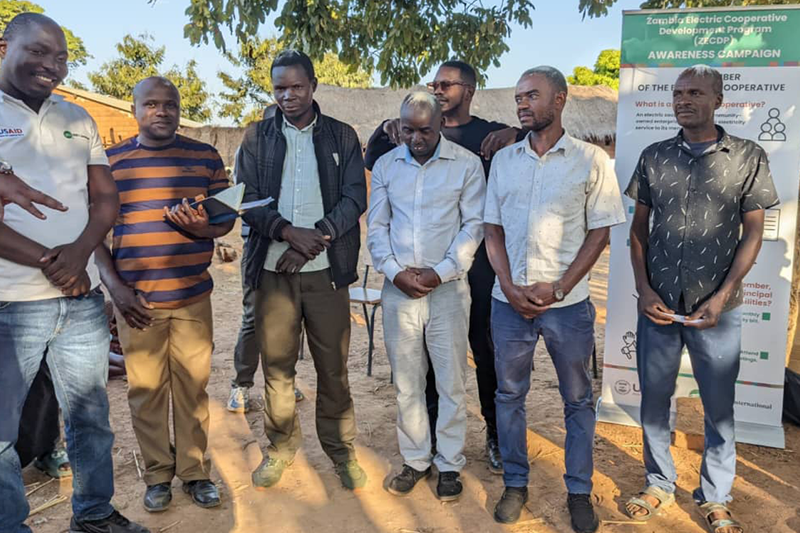
“The community needed to prepare a lot of documents before submitting an application and we worked the process together with the board members,” said Ernest. “There were many steps involved and having the cooperative registered is the biggest accomplishment!”
Ernest also stresses that there’s still lots of work ahead.
“We will be focusing on training the board members and also helping the cooperative members understand that we still have a long way for electricity to be connected,” he said.
MOVING FORWARD
When Doreen joined the team in early 2023, one of the challenges she faced was to convince potential partners, financiers, and some Zambian government officials, that the electric cooperative model is an effective and sustainable way to bring reliable electricity to rural communities.
“The cooperative model is not a new concept in Zambia, but we have a long way to go from getting buy-in to the electric co-op model,” she said. “As things start progressing on the ground in Ntatumbila and Petauke, I help people enter a new level of understanding. What also helps is our partners at the Rural Electrification Authority, their CEO Linus Chanda is a great supporter and a champion for our work.”
Emily Varga, Cooperative Business Specialist for USAID’s Cooperative Development Program is familiar with the challenges and opportunities Doreen and her team faces.
“We’ve had great engagement with the Government of Zambia on the ZECDP program,” said Emily. “However, despite the potential of this business model, cooperative development is chronically under-resourced in many of the countries in which we operate. We encourage host country governments to evaluate and reform their law and regulation to ensure that cooperatives of all forms and sectors can thrive in meeting the needs of their communities. We encourage local universities to adopt cooperative development curricula and we encourage local resource organizations to tailor their services to cooperative businesses. The support needs to be systemic, comprehensive, and enduring.”
COOPERATION AMONG COOPERATIVES
REA CEO Linus Chanda and a delegation from Zambia traveled to the U.S. earlier this year on a study tour to meet electric cooperative leaders from many countries. He voiced strong support for launching an electric co-op movement in his country to help bring power and economic growth in the rural areas.
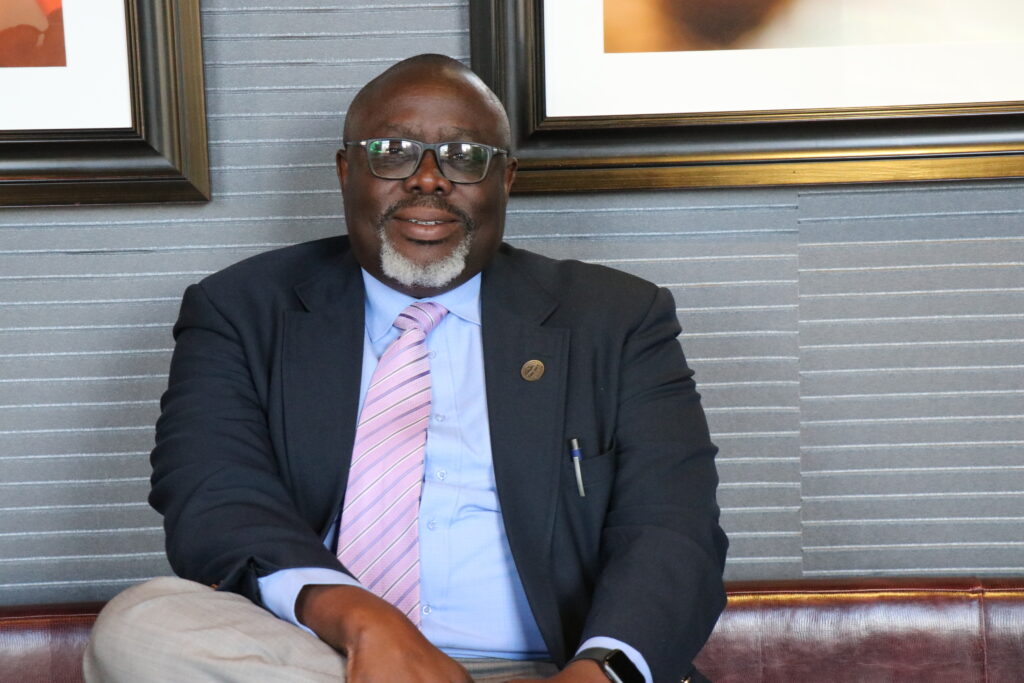
“The co-op model for me brings a very interesting dynamism,” he said during an interview during the study tour. “The cooperative is going to be community driven and focus on empowerment to the people. It’s breathtaking, really, when I think about it, and I imagine what we can do.
REA remains committed to lay a strong foundation for developing electric co-ops in Zambia to bring power to rural communities. In August, a delegation from Zambia traveled to the Philippines for a second study tour, to learn from the country’s historic electric cooperative movement that began more than 50 years ago.
The families in the Petauke district may be home to the second electric co-op established later this year. Unlike Ntatumbila, this new co-op will serve four communities with 2,500 customers over a much larger service area. And instead of constructing a power generation system, this co-op will distribute power from the national grid. Doreen foresees different challenges, but she’s already planning for success.
“We have a bigger community, more people to reach, and different cultural sensitivities to be aware of, but the people are ready to have electricity,” Doreen added. “I see so much potential for this model, and the fact that we’re empowering the community, giving ownership to the community — they know how to make their lives better. We just need to give them the tools.”